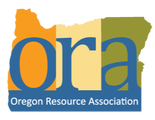Participants will have at least three new ways of using behavior support planning during COVID (such as legacy planning, mask tolerance, encouraging humor, information management and resilience philosophy)
Behavior Support Planning is not a panacea for the poison. It is not, in itself, sufficient for change. However, most of us have seen Behavior Planning as a critical tool in our arsenal of skills for helping relieve suffering and aid in personal progress.
During a time of persistent uncertainty, fear and illness, it is easy for all of us to get behind or burned out so that behavior planning becomes more difficult. These sessions will offer practical and philosophical advice and examples of how to use behavior support planning during the pandemic to reduce the suffering of staff and the individuals we serve.
The sessions will also offer innovative ideas such as including humor into behavior planning as well as what to do if multiple staff turn over or are out sick at the same time (legacy and specificity planning). We will also look for any opportunities for us to share what is and what is not working based on experience. And we should all have some fun. Fun will be mandatory.
Dr. Clay is a Licensed Clinical Psychologist with Degrees from the University of Oregon and Pacific University. As part of his Residency, he was a Fellow at the Center on Human Development and Disability at the University of Washington Medical Center as well as Oregon Rehabilitation Association and Oregon State Hospital. Dr. Clay has worked as a direct care staff, case manager, protective services investigator, Clinical Psychologist and Clinical Neuropsychologist.
During Graduate School, he focused on Clinical and Research undertakings with the Dual Diagnosed (those with Intellectual Disabilities and Comorbid Mental Illness), as well as adult Neuropsychology. He published 3 times in peer reviewed journals during his graduate studies and won a competitive scholarship focusing on work with the Dual Diagnosed.
Dr. Clay was on the board of Galt Foundation for more than 10 years, an organization dedicated to providing vocational services to people with disabilities in Oregon, Oklahoma.
Over the previous 10 years, Dr. Clay has provided therapy and assessment to people with Depression, Autism, Anxiety Disorders, Intellectual Disabilities, Life Transition Issues and many others. Dr. Clay’s therapeutic approach is based in CBT, but includes humanism and humor. Dynamic humor can lead to authentic rapport which may allow for more formal interventions to be applied.
He has spoken at more than 20 conferences, Keynoted at the Oregon Co-Occurring conference 5 years in a row and recently organized the annual conference for 2013. In addition, he has provided more than 75 speaking engagements to partners throughout the region.
For more information on this training on how you can participate, contact Kim Mintrone (kmintrone@oregonresource.org) at 503-585-3337.
Behavior Support Planning is not a panacea for the poison. It is not, in itself, sufficient for change. However, most of us have seen Behavior Planning as a critical tool in our arsenal of skills for helping relieve suffering and aid in personal progress.
During a time of persistent uncertainty, fear and illness, it is easy for all of us to get behind or burned out so that behavior planning becomes more difficult. These sessions will offer practical and philosophical advice and examples of how to use behavior support planning during the pandemic to reduce the suffering of staff and the individuals we serve.
The sessions will also offer innovative ideas such as including humor into behavior planning as well as what to do if multiple staff turn over or are out sick at the same time (legacy and specificity planning). We will also look for any opportunities for us to share what is and what is not working based on experience. And we should all have some fun. Fun will be mandatory.
Dr. Clay is a Licensed Clinical Psychologist with Degrees from the University of Oregon and Pacific University. As part of his Residency, he was a Fellow at the Center on Human Development and Disability at the University of Washington Medical Center as well as Oregon Rehabilitation Association and Oregon State Hospital. Dr. Clay has worked as a direct care staff, case manager, protective services investigator, Clinical Psychologist and Clinical Neuropsychologist.
During Graduate School, he focused on Clinical and Research undertakings with the Dual Diagnosed (those with Intellectual Disabilities and Comorbid Mental Illness), as well as adult Neuropsychology. He published 3 times in peer reviewed journals during his graduate studies and won a competitive scholarship focusing on work with the Dual Diagnosed.
Dr. Clay was on the board of Galt Foundation for more than 10 years, an organization dedicated to providing vocational services to people with disabilities in Oregon, Oklahoma.
Over the previous 10 years, Dr. Clay has provided therapy and assessment to people with Depression, Autism, Anxiety Disorders, Intellectual Disabilities, Life Transition Issues and many others. Dr. Clay’s therapeutic approach is based in CBT, but includes humanism and humor. Dynamic humor can lead to authentic rapport which may allow for more formal interventions to be applied.
He has spoken at more than 20 conferences, Keynoted at the Oregon Co-Occurring conference 5 years in a row and recently organized the annual conference for 2013. In addition, he has provided more than 75 speaking engagements to partners throughout the region.
For more information on this training on how you can participate, contact Kim Mintrone (kmintrone@oregonresource.org) at 503-585-3337.
